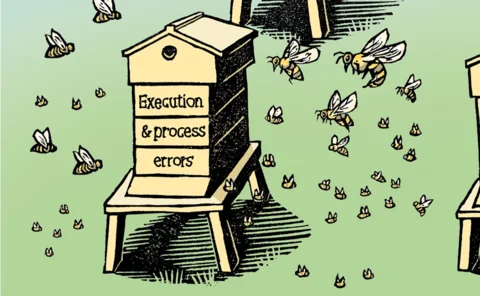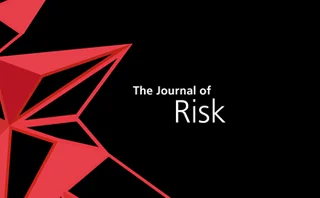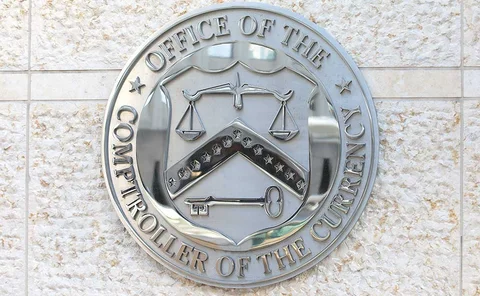Key risk indicators (KRIs)
On resilience risk, banks prepare to let the bad times roll
Lenders bolster first-line teams and upskill boards as compliance with new rules bites
Op Risk Benchmarking 2024: the G-Sibs
Eleven large banks feature in round II, with new data points on first-line risk teams, taxonomies and AI adoption
Key indicators for the credit risk evaluation of clients and their changing characteristics
The authors propose a credit risk evaluation model for energy performance contracting projects with debt- paying ability and long-term capital debt ratio as optimal indicators.
Geopolitics is harsh terrain for FMIs
Idiosyncratic nature of disputes and flare-ups leaves exchange and infrastructure operators blending metrics with guesswork
FMIs get busy, as supervisors circle
Via new roles and controls, exchanges and clearers hope to “get ahead” of regulatory wave
Information security: too important to leave to the experts?
Holding a trove of sensitive data, FMIs seek greater safety through shared oversight and smarter reporting
Op Risk Benchmarking, round III: the FMIs
Decade of change has seen exchanges and CCPs grow in size and importance, dragging their management of op risk into the regulatory spotlight
Execution & process errors: banks try to get beyond blunderdome
Mistakes mean more data for reporting, models and scenarios. But do banks learn from them?
Power play: how geopolitics is shaping op risk at G-Sibs
Geopolitics is a top five fear for G-Sibs, but most banks lack specialist risk staff and classical tools
Sizing cyber: banks split on who owns and measures hack threats
G-Sibs split on risk modelling and management for IT disruption and infosec
Op Risk Benchmarking: Inside the G-Sibs
New initiative scrutinises op risk measurement and management practices at the world’s largest banks
Ten laws of operational risk
This paper sets out ten laws that govern the behavior of operational risk relating to the occurrence and detection/duration of events; the rapidity with which firms suffer losses; the lags in crystallization of losses; and internal and external drivers…
Quantification of regulatory capital for management of operational risk in banks: study from an emerging market economy
This paper studies the various methodologies used by an Indian bank in its operational risk management activities: these include loss database analysis, risk control self-assessment and key risk indicator (KRI) identification.
Near-real-time monitoring in real-time gross settlement systems: a traffic light approach
This paper develops a method to identify quantitative risks in financial market infrastructures (FMIs) that is inspired by the Principles for Financial Market Infrastructures.
SunTrust’s ‘swim lanes’ keep exposures in line
Bank has five bands of risk – a granular approach it says makes it easier to control exposures
OCC forms working group to tackle fraud
OpRisk North America: Rise in cyber fraud prompts US regulator to reassess guidance to examiners
Risk culture: banks fall short in eyes of staff
Many risk managers believe their banks have work to do on understanding, measurement and management of risk culture
OpRisk Europe and North America wrap: cyber, 3LOD and the SMA
Future of op risk modelling a hot topic at conference, along with evolving three lines of defence framework
Fed examiner calls on banks to rethink KRIs
Most banks fail to establish explicit link between KRIs and identified risk exposures
Energy risk teams explore use of KRI metrics
KRIs show particular promise for managing operational risk
A holistic view of risk: Combining risk assessment, risk events, scenario and KRI data
Sponsored webinar: MetricStream




















